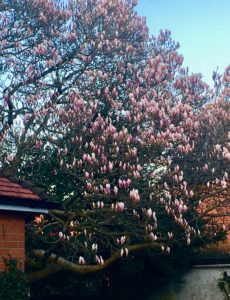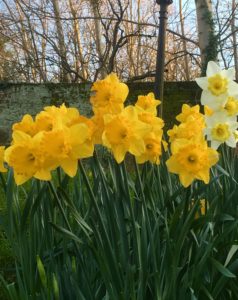February turned out to be even more wet than December and January. I do not think it has stopped raining:
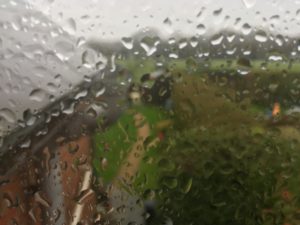
I went up to London to do a lecture at the Institute of Education, UCL.
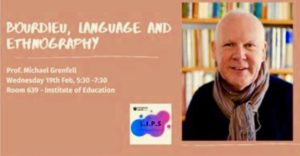
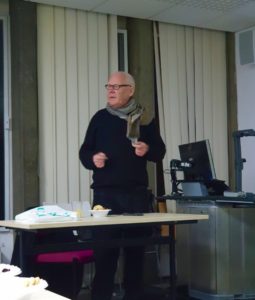
Good reception.
While there, I took in the exhibition of the Belgium artist Spilliaert at the RAA. Quite impressive this, and very Scandinavian – even if he was not! He often painted in inks, which he combined with graphite. Subjects were somewhat ‘lonely’ figures in their own landscapes – a mixture of Munch and Hopper, perhaps.
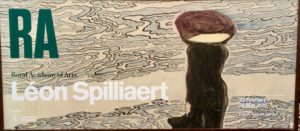
Then, to Cornwall. Stormy walks around Lands End:
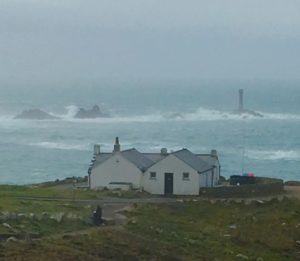
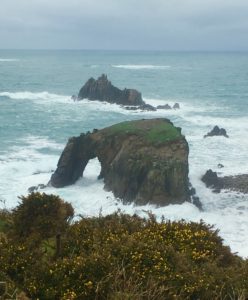
Next, on to my home village of Mousehole (Mowsel).
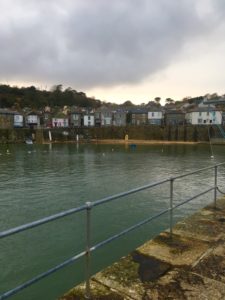
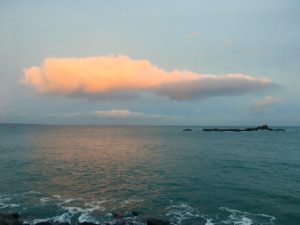
Very different to Mousehole in the past:
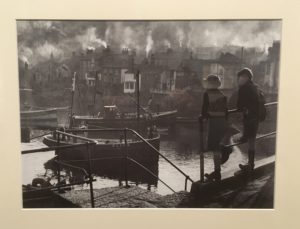
This came from an exhibition of photos of local people – at work and at play – at the Penlee Gallery:
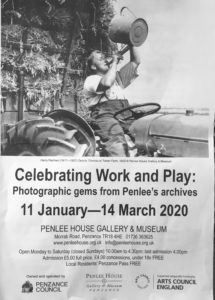
A local artist, Herbert Dyer, here working with Copper which he shaped into ornamental figures. I have a small example of his work – Newlyn on a matchbox holder:
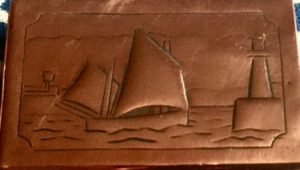
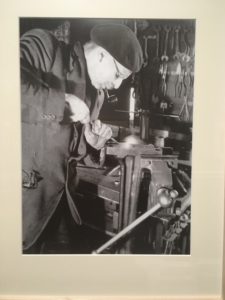
A mixture of sun and clouds in Penzance and Marazion/ St Michael’s Mount:
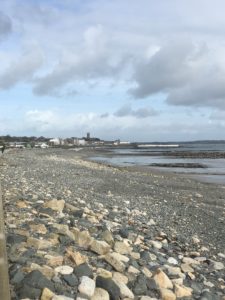
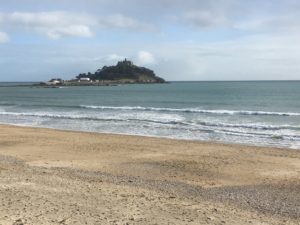
In Penzance, I also went to a concert of Piano and Flute music: music by Mozart, Messiaen, Haydn, Franck, and Reinecke. All good stuff, but I was reminded that Mozart disliked the flute and, after a couple of hours of its shrill tones, I too had had enough! Ironically, the best piece was probably the Mozart.
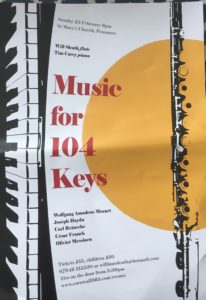
A trip to the Tate Gallery in St Ives for the Naum Gabo exhibition:
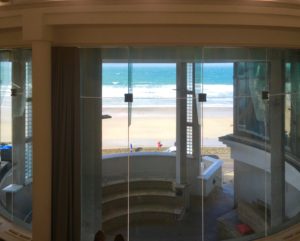
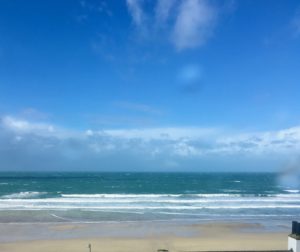
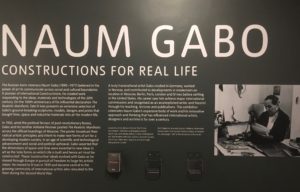
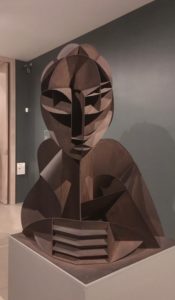
I have always associated Naum Gabo with geometric constructivism:
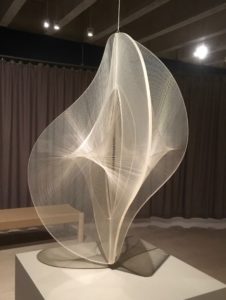
But, it turns out he had a much broader range of output than I knew. Albeit still in geometric mode. Anyway, an important figure in the development of St Ives arts in the 30 and 40s.
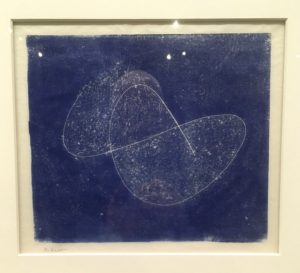
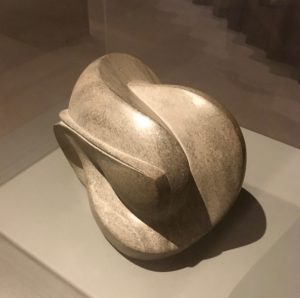
For Books, I finally completed the Hesse biography.
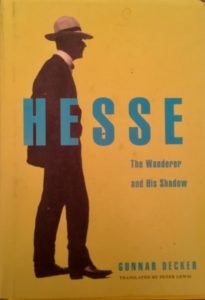
There is a really terrible review of this book by John Gray in the New Statesman.
https://www.newstatesman.com/2018/12/Hermann-hesse-Wanderer-Shadow-Gunnar-Decker-review
In fact, he hardly seems to have read the book after the opening sections and takes the opportunity to list all the reasons he does not Hesse, which are so obvious.
Turns out that Hesse was a lot tougher than one might think: volunteered for the front in the First World War and sheltered various refugees in the second. More interestingly, is the way he was a kind of early pioneer to the sort of ‘self-discovery’ explorations that became the norm with younger generations in the post war period. His parents were Pietist Lutherians – he was born in 1877 – and he had a torrid time with their attitude to life and literature. Hesse made lots of mistakes – like marrying the wrong person three times and for all the wrong reasons. And, he did end up extremely sensitive and neurotic. However, he opposed German nationalism against a lot of public disapproval. In his life and work we see his struggle for a certain kind of spiritual consciousness. Clearly, he was doing this against the background of nineteenth century German philosophy and with none of the techniques we now have at our dispossal. But, he was aiming for something credible – I am certain of that – and did suffer for the positions he took in attaining it. Indeed, it is a position many of us are still struggling for – and against reactionary hectoring by the likes of Gray.
Somewhat as an antidote to all that, I read Agnes Poirier’s account of the Parisian Left Bank:
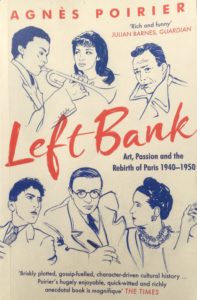
Not so academic and a bit journalistic, still it captures the lives lived and the views shared (and otherwise) by artists, writers and philosophers from the 1930s onwards; of course, also focusing on what happened in the second world war. All the star Parisian Left Bankers are there: Sartre, de Beauvoir, Camus, Vian, Greco, etc. A very lively and telling read.
My CD of the months is Brahms’ Late Piano pieces. Lovely playing here from Stephen Hough. The title suggests a spirit of sadness and departure, but this is not how these come across – these are not like Strauss’s Last Four Songs. There are more introspective pieces but many are very lively. Nevertheless, the mood is somewhat of ‘aloneness’ – as if someone playing for and to themselves in a separate room. Great CD:
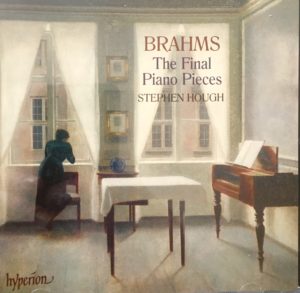
As I write, the country seems to be going into lock-down over the Coronavirus. We shall see what happens. Nevertheless, with everyday now the light is strengthening and there are signs of spring:
